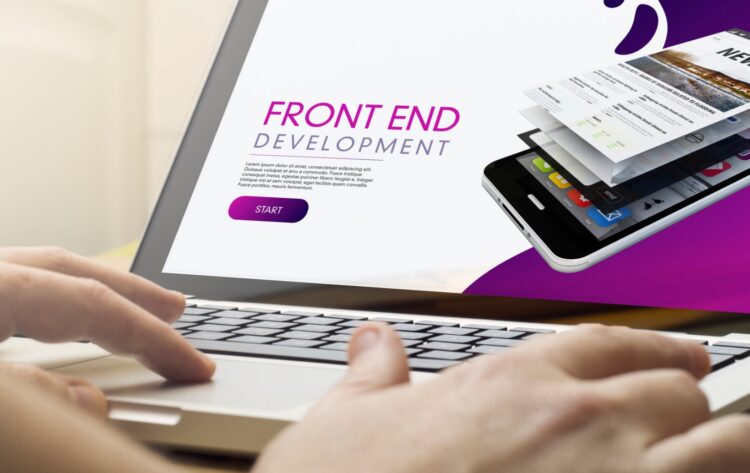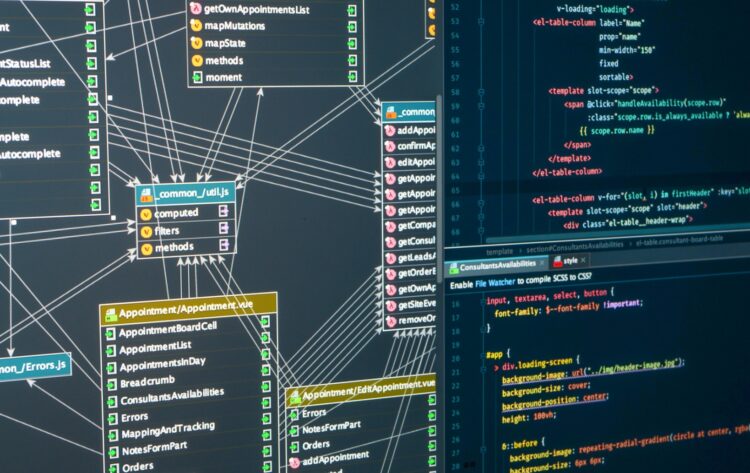Front-end development encompasses a wide range of intricacies. The first thing we interact with when browsing websites is the front end, making it a crucial aspect.
Front-end development encompasses a wide range of intricacies. The first thing we interact with when browsing websites is the front end, making it a crucial aspect. Figuring out what areas to focus on in your learning journey may take some time and effort, but the key is identifying the specific topics that need your attention. Today, I’ll guide you through a roadmap to help you achieve your goal of becoming a Front-end Developer by 2023.
What is a Front-end Developer? Let’s start with the basics!
A Front-end Developer is responsible for creating the user interface (UI) of a website or web application. This includes the visual aspect of the application and how the user interacts with it.
The various buttons, UI elements, media, text, forms, animations, etc. that you see when visiting a website are all products of a Front-end Developer’s efforts.

Reflections on My Journey from Novice to Front-end Developer
I began my journey in programming during my first year of university, with no prior experience. My interest in technology was what led me to pursue a career in IT.
I recall my first class in front-end development, where we were tasked with creating a simple website using HTML and CSS. At that point, I had no idea what these technologies were. Nonetheless, I gave it a shot and was immediately drawn to it, solidifying my desire to pursue a career in this field. A year and a half later, I secured my first job as a Front-end Developer at Applover, utilizing Vue.js.
Starting Out as a Front-end Developer in 2023: What to Focus On
Before you dive into writing code, it’s crucial to gain a fundamental understanding of how the internet works from the back end. Acquainting yourself with concepts such as protocols, the functioning of browsers, domains, hosting, and DNS will serve as a strong foundation for your future learning.
Although you may not use this knowledge directly in your work, it will provide a comprehensive overview of the environment and make your future learning easier. Additionally, it’s also a good idea to familiarize yourself with the GIT version control system and how to use repositories to store your projects.

Getting Started with Your First Front-end Code
Begin by learning HTML and CSS. Look for tutorials on platforms like YouTube or Udemy and try building your first page along with the instructor. You’ll find that it’s straightforward. Dedicate time to practicing CSS so that you can create any layout you desire. Familiarize yourself with CSS preprocessors like SCSS, SAAS, and LESS, which make working with CSS easier and reduce the amount of code required.
Once you feel comfortable with HTML and CSS, start exploring different page layouts that you like. This will help you understand the reasoning behind their design and give you a deeper understanding of UI development. I recommend checking out the 100 Days Of Code – 2022 Web Development Bootcamp course by Maximilian Schwarzmuller (note: no courses mentioned in this text are sponsored).
Spicing Up Your Front-end Education Journey
JavaScript brings dynamic interactivity to previously static, predictable, and simple elements of a website, making it the “magic” in front-end development. With JavaScript, you can write virtually limitless logic for how your site functions. Start by gaining a solid understanding of the basics of pure (vanilla) JavaScript, and then move on to using frameworks.
Along with learning the language itself, it’s also essential to familiarize yourself with good practices such as SOLID, KISS, and DRY. To achieve this, you may want to consider taking a course like The Complete JavaScript Course 2022: From Zero to Expert by Jonas Schmedtmann.

Exploring Frameworks
As you progress in your front-end development journey, you may want to experiment with the added capabilities that come with using JavaScript frameworks. These frameworks provide you with the tools to manage your application’s state, routing, and responsiveness and can help you create functionality that would have been difficult or impossible otherwise. Once you have a strong understanding of the framework of your choice, you’ll be well on your way to landing your first job as a front-end developer.
If you choose to work with Vue, like the author, it is recommended that you take The Complete Guide (incl. Router & Composition API) course by Maximilian Schwarzmuller.
The key to becoming a successful programmer is to actively practice writing code yourself.
Don’t just observe other’s coding; try to code alongside them. This will help you improve your coding skills and retain more information. After each lesson, try to apply what you have learned by working on a project that incorporates the new skills. This will give you hands-on experience and increase your confidence, even if you face challenges along the way.
Your personalized front-end development initiatives
The best way to improve your skills as a Front-end Developer is by working on your own projects. To get inspiration and practical ideas, consider visiting websites such as Frontend Mentor. There, you will find a variety of challenging projects suited for developers at all levels, along with ready-made designs. As you work on these projects, don’t forget to upload your work to your repository, as this will help you build a strong portfolio.

Refactoring is a beneficial tool
My approach to coding is to always strive for improvement. I believe that even if a piece of code is functional, it can always be made better in terms of simplicity, efficiency, and readability. This process of improving and simplifying code is known as refactoring. To help with this, I recommend reading the books “Clean Code” and “Master of Clean Code” by Robert C. Martin.
Don’t feel limited by the amount of information you have!
To be a front-end developer in the current times, you need to have a good understanding of HTML, CSS, and at least one JavaScript framework such as Angular, React, or Vue. Additionally, knowledge of the GIT version control system, CSS preprocessors, code writing conventions, and more is necessary, and the field is constantly evolving with new knowledge and tools being developed. The sooner you start, the better, as the demand for these skills increases along with the resources available to learn and develop them.

What are the upcoming advancements in front-end development for you in 2023?
Going forward to 2023, you have several other topics to delve into to further advance your front-end development skills. These include important areas such as testing, CSS frameworks, TypeScript, Progressive Web Applications (PWAs), and server-side rendering.
Once you’ve gained a solid understanding of your preferred JavaScript framework and built up a portfolio of projects, it’s time to start searching for junior front-end developer job opportunities or internships. A great way to get your foot in the door is by starting with an internship, which can lead to your first job. Pay attention to job postings and interview experiences to get a sense of what the market demands, and what skills you may still need to develop.
To prepare for a job interview, consider using JavaScript flashcards that cover both the basics of the language and popular frameworks like React, Angular, and Vue. Currently, these flashcards are only available in Polish.
Wishing you all the best!




